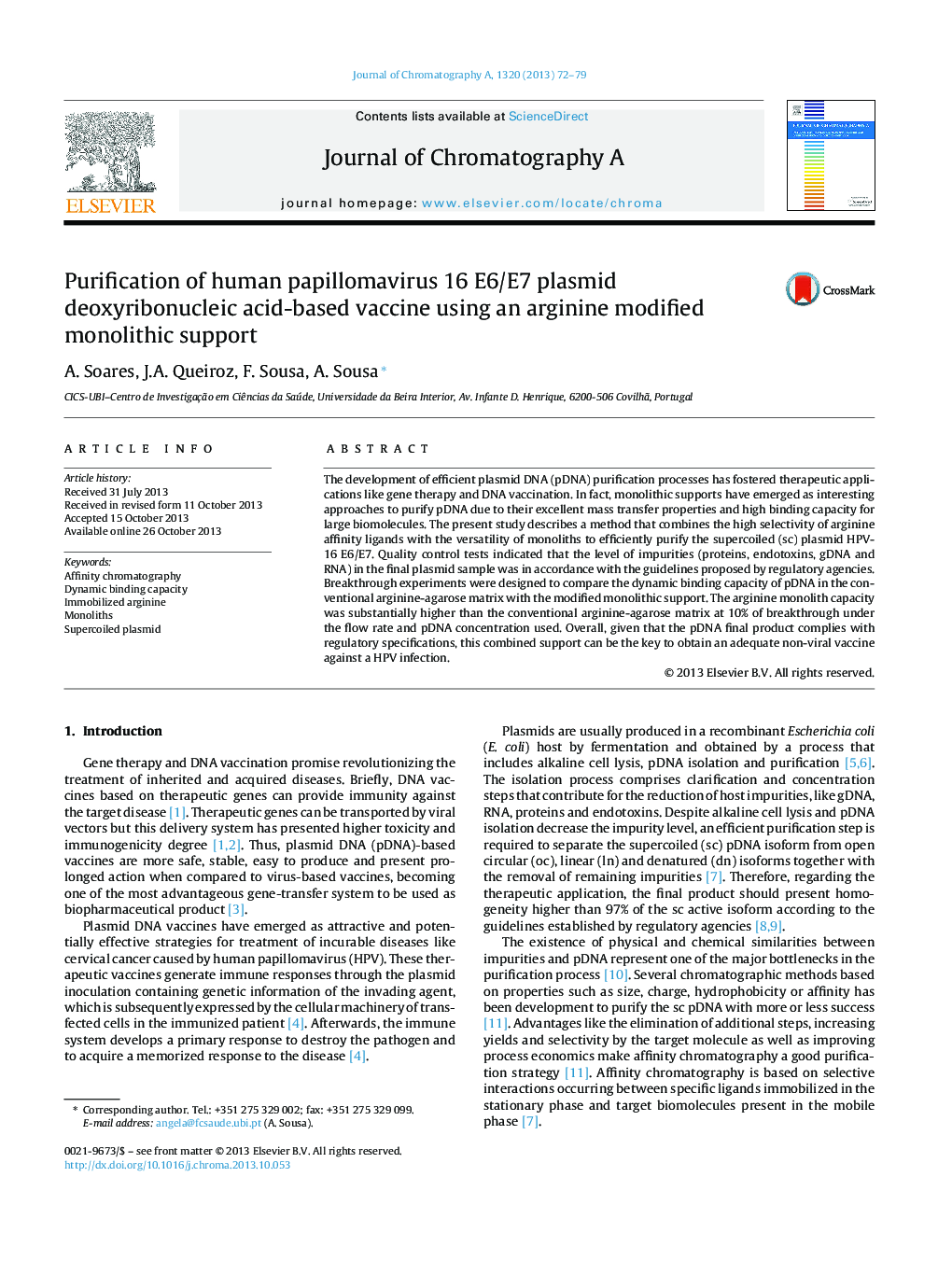| Article ID | Journal | Published Year | Pages | File Type |
|---|---|---|---|---|
| 1200645 | Journal of Chromatography A | 2013 | 8 Pages |
•Combination of the selectivity of arginine affinity ligands with the versatility of monoliths.•Capacity of arginine monolith was substantially higher than arginine-conventional support.•Supercoiled plasmid HPV-16 E6/E7 was efficiently purified using the arginine monolith.•The final plasmid product showed good quality and recovery (39%) for therapeutic applications.
The development of efficient plasmid DNA (pDNA) purification processes has fostered therapeutic applications like gene therapy and DNA vaccination. In fact, monolithic supports have emerged as interesting approaches to purify pDNA due to their excellent mass transfer properties and high binding capacity for large biomolecules. The present study describes a method that combines the high selectivity of arginine affinity ligands with the versatility of monoliths to efficiently purify the supercoiled (sc) plasmid HPV-16 E6/E7. Quality control tests indicated that the level of impurities (proteins, endotoxins, gDNA and RNA) in the final plasmid sample was in accordance with the guidelines proposed by regulatory agencies. Breakthrough experiments were designed to compare the dynamic binding capacity of pDNA in the conventional arginine-agarose matrix with the modified monolithic support. The arginine monolith capacity was substantially higher than the conventional arginine-agarose matrix at 10% of breakthrough under the flow rate and pDNA concentration used. Overall, given that the pDNA final product complies with regulatory specifications, this combined support can be the key to obtain an adequate non-viral vaccine against a HPV infection.
